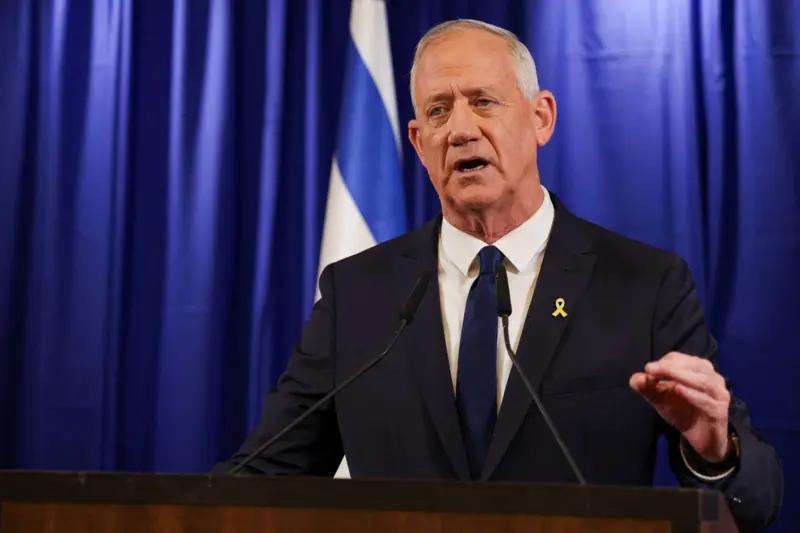

Israeli war cabinet minister, Benny Gantz has quit the emergency government in a sign of deepening divisions over Prime Minister Benjamin Netanyahu’s post-conflict plans for Gaza.
Speaking during a news conference in Tel Aviv on Sunday where he announced his resignation, Mr Gantz said the decision was made with a “heavy heart”.
“Unfortunately, Mr Netanyahu is preventing us from approaching true victory, which is the justification for the painful ongoing crisis,” he said.
The retired army general and frequent critic of Mr Netanyahu also called on the prime minister to set a date for elections.
Mr Netanyahu responded with a post on X: “Benny, this is not the time to quit the campaign, this is the time to join forces.”
Last month, Mr Gantz set a deadline of 8 June for Mr Netanyahu to lay out how Israel would achieve its six “strategic goals”, including the end of Hamas rule in Gaza and the establishment of a multinational civilian administration for the territory.
The prime minister dismissed the comments at the time as “washed-up words” that would mean “defeat for Israel”.
A retired army general, Mr Gantz had been a member of Israel’s key decision-making “war cabinet”, along with the prime minister and Defence Minister Yoav Gallant.
During the news conference, Mr Gantz said he is not only personally resigning from the government, but withdrawing the National Unity party he chairs, too.
The move will not topple the Israeli government, since Mr Netanyahu will still hold a comfortable majority of 64 in the 120-seat Knesset.
It does, however, lay bare the deep political divisions over how the prime minister is running the war.
A political rival of Benjamin Netanyahu and a former IDF chief of staff, Mr Gantz’s centrist National Unity party was in opposition until 11 October 2023 when, after the start of the war following Hamas’s 7 October attacks, he agreed to form an emergency government with Mr Netanyahu.
National Unity holds five posts in the emergency government.
Mr Gantz’s influence in the government was widely seen as a counterbalance to that of far-right members of Mr Netanyahu’s coalition.
BBC / Titilayo Kupoliyi